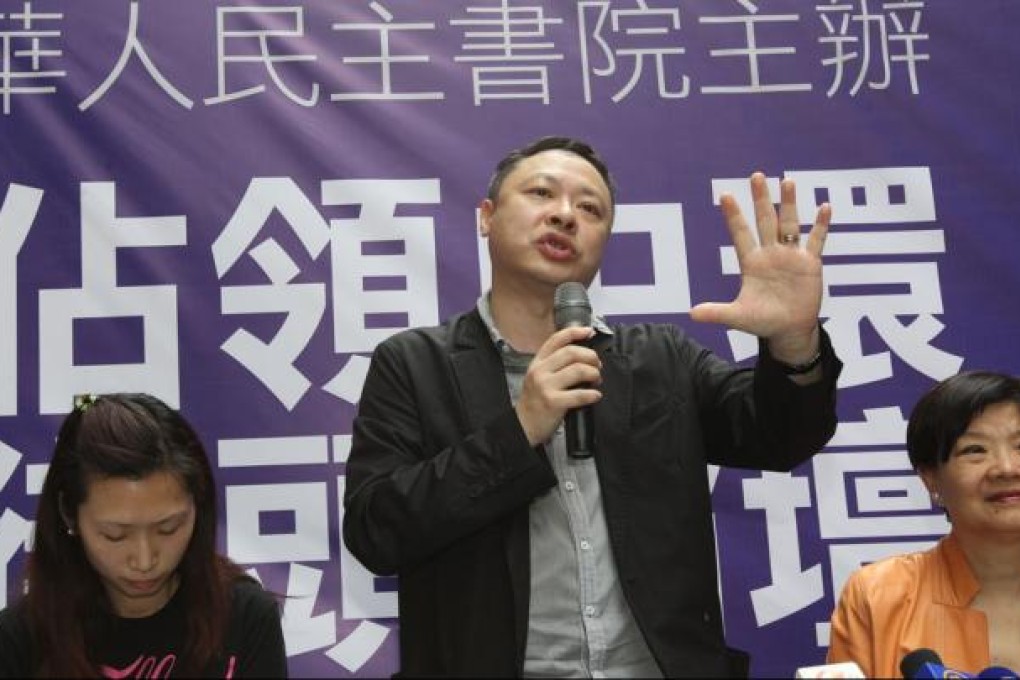Activist puts out Occupy Central action plan
Movement reveals a timetable to meet and consult supporters and experts on blockade

An academic behind a plan to block roads in Central to fight for democracy said it remained to be seen whether organisers can reach a consensus with another pan-democratic alliance on demands for the 2017 chief executive election reform.
University of Hong Kong associate law professor Benny Tai Yiu-ting offered more details about his timetable for the plan at a street forum in Mong Kok yesterday.
"I will meet the Alliance for True Democracy … I believe it will take some time to see whether we can reach consensus on the election reform proposal," Tai said after the forum.
His remarks came as social activist Yip Po-lam warned at the same occasion that it would be a "disastrous outcome" should the 27 pro-democracy lawmakers in the alliance not vote for the proposal to be formulated and authorised by the Occupy Central movement.
Asked if he might join the alliance, Tai said he found it "not defining" at the moment, and that the alliance members who support the Occupy Central movement could become a bridge of communication.
Tai said his movement plans to invite supporters to meet on a Sunday in early June to discuss problems that might arise during the action. Public hearings, he said, would also be held around that time for anyone, including those against this plan, to make their voices heard.